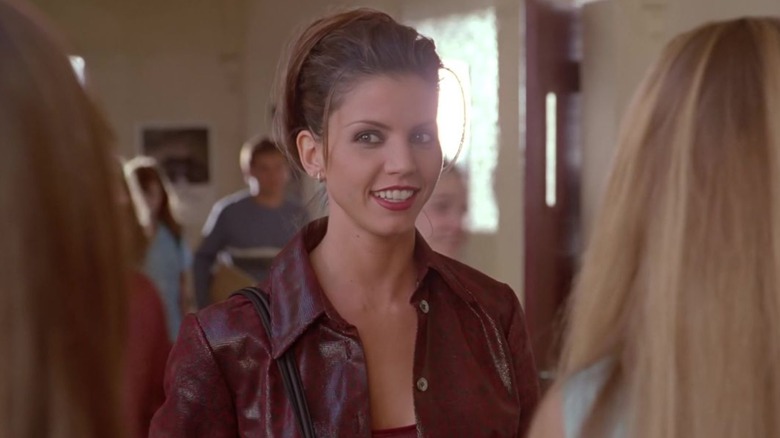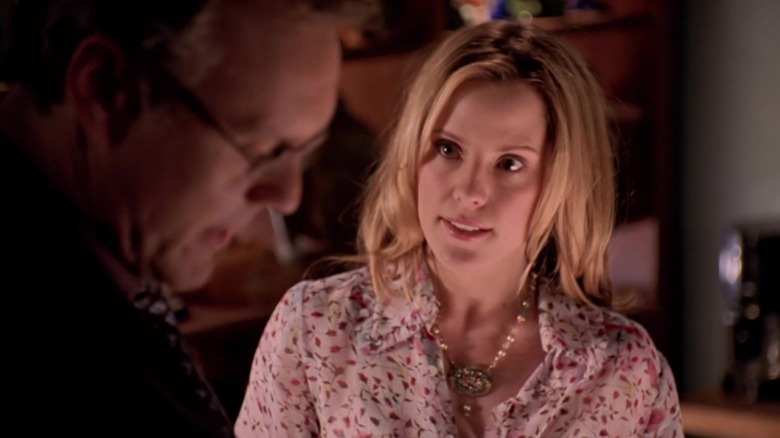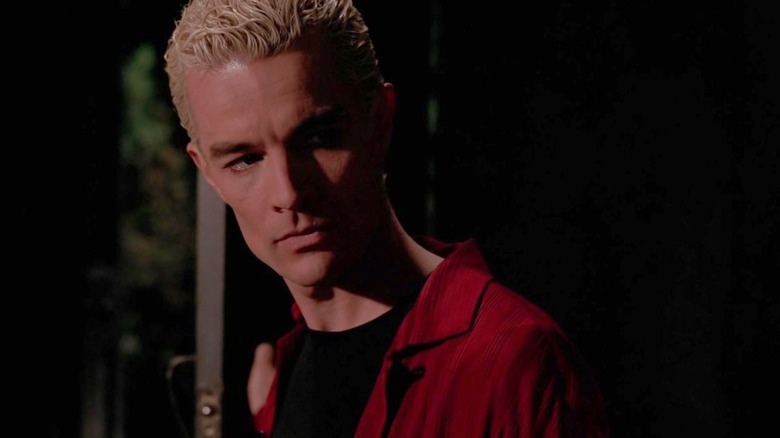Slayers Review: The Buffyverse Returns (Without Buffy)
Since "Buffy the Vampire Slayer" staked its last monster 20 years ago, the franchise hasn't exactly rested peacefully. Continuation comics, novels, and planned reboots have kept the Buffyverse alive, but its legacy has also been complicated by allegations of workplace misconduct and bullying made against series creator Joss Whedon.
The latest installment of the world of Buffy, the Audible series "Slayers: A Buffyverse Story," aims to course-correct that, reuniting key cast members for the first time ever to tell a story Whedon plays no part in. To say the writer is nowhere to be found here would be inaccurate, though, as "Slayers" — an intermittently charming, sometimes forced new chapter — is all about overcoming the toxic influence of the past.
The story takes place roughly 12 years after Buffy Summers instilled all potential slayers with their full power, breaking a cycle of pain and isolation that afflicted centuries worth of chosen teen girls. The new series pays fairly close attention to canon, but also uses a nifty multiverse plot to get around it and bring back new versions of beloved characters. In the three episodes of "Slayers" available for review, bad boy vamp Spike (James Marsters), friendly monster Clem (James C. Leary), and retired Watcher Giles (Anthony Head) all return, as do versions of deadly, daydreaming vamp Drusilla (Juliet Landau), former demon Anya (Emma Caulfield), mild-mannered witch Tara (Amber Benson), and preppy hero Cordelia (Charisma Carpenter). The latter's return is especially satisfying, given that Carpenter says she was wrongfully terminated by Whedon after a frankly torturous-sounding working relationship.
A partial cast makes for a convoluted storyline
Not every part of "Slayers" is as thrilling as Cordelia's return, though. The series is co-written by Benson and Buffyverse novelist Christopher Golden, and it vacillates between engrossing and convoluted depending on the moment. The action starts when an unlikely Big Bad pair-up leads an alternate version of Cordelia — this one a slayer — to seek out main-timeline Spike, who's currently babysitting a brand new slayer named Indira (Laya DeLeon Hayes, a lovable standout).
The storyline is compelling enough, but it also feels as if it was overtly written around which actors were able to return to the series and which weren't. Chipper Indira's relationship with Spike calls to mind the vamp's unlikely kinship with Dawn, while Clem seems as if he's completely taking over the Xander role. Some of the patches for absent actors aren't just obvious, but also stupid, as when Tara speaks to a particularly grating scene partner who can't speak back.
The limited cast results in a story that feels oddly stitched-together at times, but at its best, it's capable of recapturing the magic of the original — with a more mature thematic throughline. "Some a**holes never learn," Spike says in his noir-tinged voiceover, and if you wonder which a**holes he's talking about, don't worry, he'll explain. Spike shares some pointed commentary on the role of "bad guys" in society in the show's first moments, and if you couple that with other characters' commentary on their own traumas and bad relationships, it's clear that the series is working through something that goes beyond the boundaries of fiction.
Slayers takes on the original series' legacy
In its strongest moments, "Slayers" feels like it's building towards a sort of emotional purge: a personal-feeling take on power and its ability to corrupt. Given how often the original series played with metaphor in its take on feminism, and how ironic that became once Whedon's actions came to light, these introspective moments feel not just fitting, but earned.
If "Slayers" is building towards something grand, though, it'll have to do a bit more to keep audiences invested in the long run. In addition to its spotty deployment of a fragmented cast, the show also sometimes suffers from its audio-only format. Some of its scenes sound vivid and hit comedic and action beats perfectly, but others fall flat; it's tough to make both fight scenes and love scenes sound as interesting as they look. Still, the majority of the cast does great work here. It's a treat to hear Drusilla's melodramatic pout, or Spike's endless posturing, or Tara's endearing stutter (though one version of Tara presented here is entirely unconvincing). Hayes is also a great addition to the cast, playing both a delightfully meta fangirl and a sunny counterbalance to her dark and dreary companions.
To call "Slayers" an outright return to form would be dishonest, as the series has some kinks to work out, as well as shortcomings that may just be a part of the listening experience. Yet the show is always entertaining, its cast largely excels, and it's thoughtful in its approach to both its source material and the complex legacy it now holds. So far, "Slayers" isn't great, but it has good bones – which is fitting for a series coming back from the dead when we least expect it.
"Slayers" is available on Audible now.


